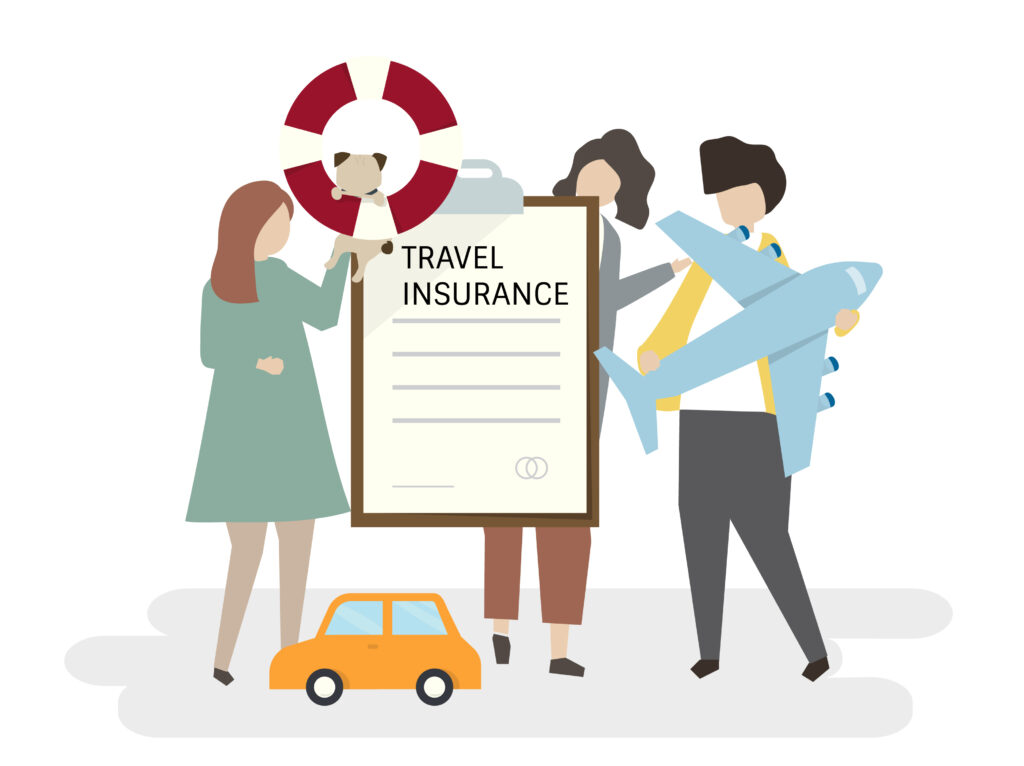Travel Insurance is venturing beyond borders is a thrilling endeavor. The intoxicating allure of foreign lands, unknown cuisines, and new experiences calls to the soul. Yet, amid this intoxicating anticipation lies an undercurrent of uncertainty.
Flight cancellations, lost baggage, medical emergencies—such unpredictable events can transform an idyllic getaway into a logistical nightmare. That’s where travel insurance becomes not merely a convenience, but an essential shield for any globetrotter.
What Is Travel Insurance?
Travel insurance is a financial safety net designed to cover unforeseen losses incurred while traveling. These may include trip cancellations, interruptions, medical emergencies, baggage delays, or even evacuations due to natural disasters or political unrest. It’s a multifaceted policy that caters to both minor inconveniences and major crises.
At its core, insurance offers peace of mind. It transforms the unpredictable into the manageable, allowing travelers to focus on the joy of exploration rather than potential pitfalls.
Why Travel Insurance Is Non-Negotiable for International Trips
When traveling domestically, unexpected incidents may still occur, but you’re typically within reach of your own healthcare provider or legal protections.
International travel, however, adds layers of complexity. Foreign health systems, language barriers, differing legal systems—all can intensify a crisis.

Key Benefits of Travel Insurance
1. Medical Coverage Abroad
Most domestic health insurance policies don’t offer international coverage. Travel insurance fills that void, covering medical expenses ranging from minor infections to major surgeries. This is particularly crucial in countries where medical care for non-residents is prohibitively expensive.
2. Trip Cancellation and Interruption
Unforeseen events—illness, injury, natural disaster, or even a death in the family—can necessitate trip cancellation. A good travel insurance policy reimburses non-refundable costs like hotel reservations, airfare, and tours.
3. Emergency Evacuation
Should you find yourself in the crosshairs of a hurricane, volcanic eruption, or political uprising, travel insurance ensures evacuation without incurring massive costs. It often includes transportation to the nearest adequate medical facility as well.
4. Baggage and Personal Belongings
Lost, stolen, or delayed luggage can derail a trip. Insurance helps recoup the cost of essentials, electronics, or even provides funds to replace critical documents like passports.
5. 24/7 Assistance Services
High-quality insurance providers offer round-the-clock support services. This could include translation help, emergency cash transfers, or referrals to trustworthy local doctors.
Choosing the Right Travel Insurance Policy
Not all travel insurance is created equal. The marketplace is vast and often riddled with policies containing fine print that may lead to claim denial. Selecting the right policy involves careful scrutiny.
Consider Your Destination Of Travel Insurance
Some regions pose greater risks than others. Traveling to a politically unstable country? You’ll need coverage for evacuation and civil unrest. Heading to a remote jungle? Medical evacuation becomes paramount.

Assess the Length and Purpose of Your Trip
A week-long vacation calls for different coverage than a six-month sabbatical. Business travel? You’ll want policies that cover work-related equipment. Adventure travel? Seek out policies that include extreme sports coverage.
Evaluate Medical Coverage Of Travel Insurance
Ensure the travel insurance policy includes comprehensive medical coverage with high limits. Look for a minimum of $100,000 in medical expenses and $250,000 for evacuation.
Review the Exclusions
Every policy has exclusions. Common ones include injuries from intoxication, pre-existing conditions, or participation in high-risk activities. Read meticulously and clarify ambiguities with the insurer.
Compare Providers Of Travel Insurance
Don’t settle for the first quote. Use comparison websites to juxtapose benefits, costs, and customer reviews. Opt for providers with a proven record of transparency and reliable customer service.
Common Mistakes Travelers Make With Travel Insurance
Even the best travel insurance can be rendered ineffective by user errors. Avoid these common pitfalls:
1. Delaying Purchase
Buy your insurance as soon as you book your trip. Waiting too long may disqualify you from claiming pre-departure cancellations or coverage for certain conditions.
2. Underinsuring
Choosing a bare-bones plan to save money often backfires. Pay attention to coverage limits and ensure they align with your travel style and risk profile.
3. Ignoring Pre-Existing Conditions
Declare any pre-existing conditions during the application process. Many insurers offer waivers, but failing to disclose can void your entire policy.
4. Overlooking the Fine Print
Always scrutinize terms and conditions. Some policies have strict documentation requirements for claims. Familiarize yourself with what’s needed to avoid disappointment later.
5. Relying Solely on Credit Card Coverage
While some credit cards offer travel insurance, the coverage is often limited. Verify specifics and consider supplemental insurance if the benefits are insufficient.
Pro Tips for Maximizing Your Travel Insurance
The right strategy can make all the difference. Here’s how to get the most from your policy:
Tip 1: Choose “Cancel for Any Reason” (CFAR) Coverage
CFAR upgrades allow more flexibility, letting you cancel a trip for personal reasons—like fear of traveling or sudden work obligations—and still receive partial reimbursement.
Tip 2: Document Everything
In the event of a claim, you’ll need evidence. Keep medical records, police reports, receipts, and email correspondences. The more documentation, the smoother the claim process.
Tip 3: Utilize Provider Resources
Most travel insurance companies offer helpful digital tools. Use their apps or hotlines for real-time help, whether you’ve lost your passport or need to find a hospital.
Tip 4: Keep a Hard Copy
Always carry a printed copy of your travel insurance policy and emergency contacts. In areas with poor internet access, this could be a lifeline.
Tip 5: Reassess If Plans Change
Changed your itinerary? Extended your stay? Update your insurance accordingly. Gaps in coverage can be risky and invalidate claims.
How Much Does Travel Insurance Cost?
Generally, insurance costs 4% to 10% of your total trip expense. Factors that affect pricing include:
Age of the traveler
Length and destination of the trip
Type of coverage (standard vs. comprehensive)
Optional add-ons (adventure sports, CFAR, etc.)
For example, a $5,000 two-week European vacation might yield a premium of $200–$400, depending on the level of protection.
Though it may seem like an added expense, consider this: a single mishap could result in expenses many times greater than the cost of the policy.
Conclusion:
International travel is a grand tapestry of discovery and growth, stitched with moments both planned and serendipitous. Yet woven into that tapestry are threads of uncertainty—events you can’t predict but can certainly prepare for.
Travel insurance is more than a policy; it’s your invisible companion. It doesn’t just protect your wallet—it safeguards your peace of mind, your health, and your experience.
So before you pack your bags, charge your devices, or dream of that first espresso in Rome or the sunrise over the Andes, pause. Invest in travel insurance. It’s the one travel essential you never want to use but will be profoundly grateful to have.


